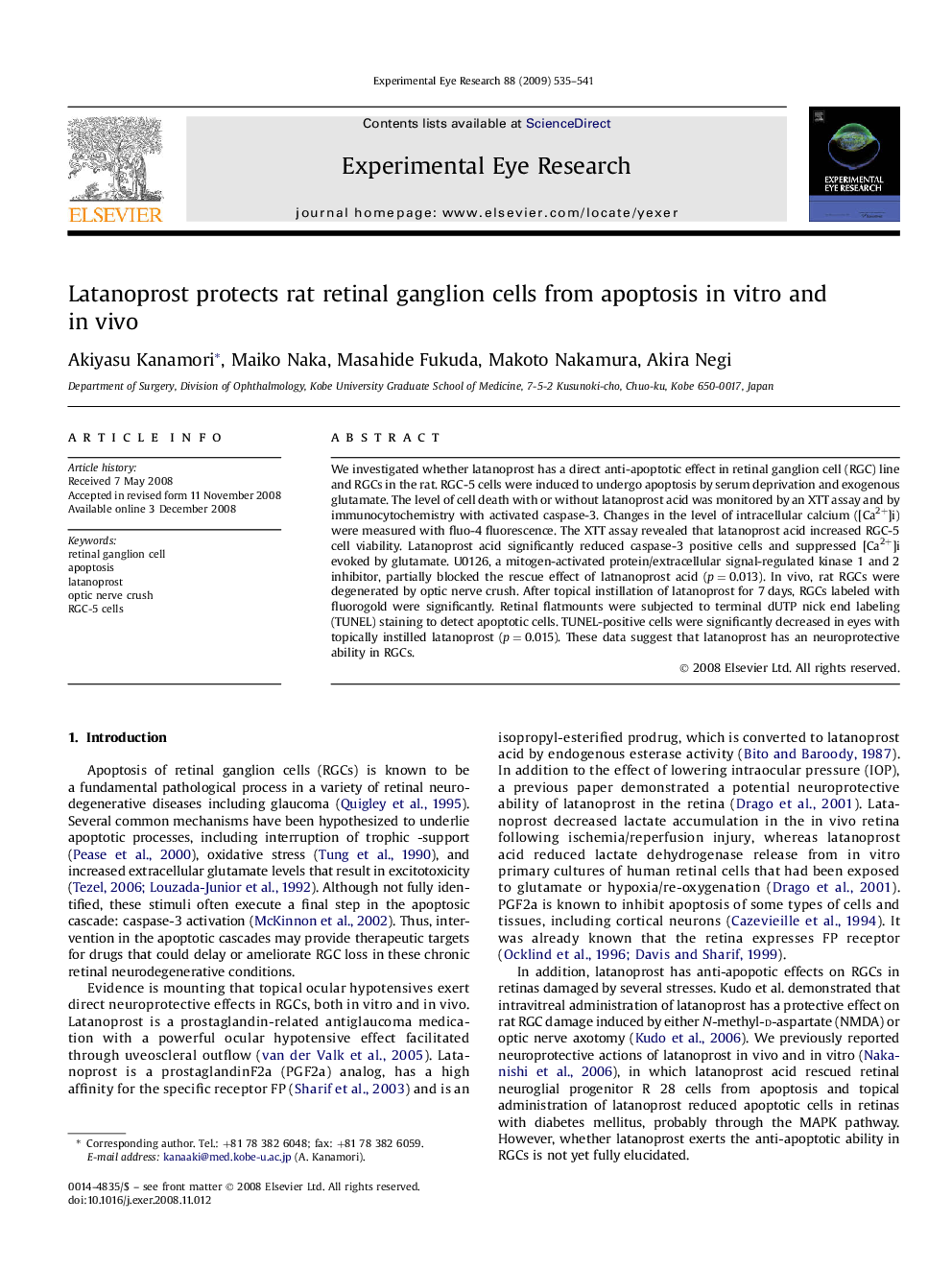| Article ID | Journal | Published Year | Pages | File Type |
|---|---|---|---|---|
| 6197549 | Experimental Eye Research | 2009 | 7 Pages |
We investigated whether latanoprost has a direct anti-apoptotic effect in retinal ganglion cell (RGC) line and RGCs in the rat. RGC-5 cells were induced to undergo apoptosis by serum deprivation and exogenous glutamate. The level of cell death with or without latanoprost acid was monitored by an XTT assay and by immunocytochemistry with activated caspase-3. Changes in the level of intracellular calcium ([Ca2+]i) were measured with fluo-4 fluorescence. The XTT assay revealed that latanoprost acid increased RGC-5 cell viability. Latanoprost acid significantly reduced caspase-3 positive cells and suppressed [Ca2+]i evoked by glutamate. U0126, a mitogen-activated protein/extracellular signal-regulated kinase 1 and 2 inhibitor, partially blocked the rescue effect of latnanoprost acid (p = 0.013). In vivo, rat RGCs were degenerated by optic nerve crush. After topical instillation of latanoprost for 7 days, RGCs labeled with fluorogold were significantly. Retinal flatmounts were subjected to terminal dUTP nick end labeling (TUNEL) staining to detect apoptotic cells. TUNEL-positive cells were significantly decreased in eyes with topically instilled latanoprost (p = 0.015). These data suggest that latanoprost has an neuroprotective ability in RGCs.
